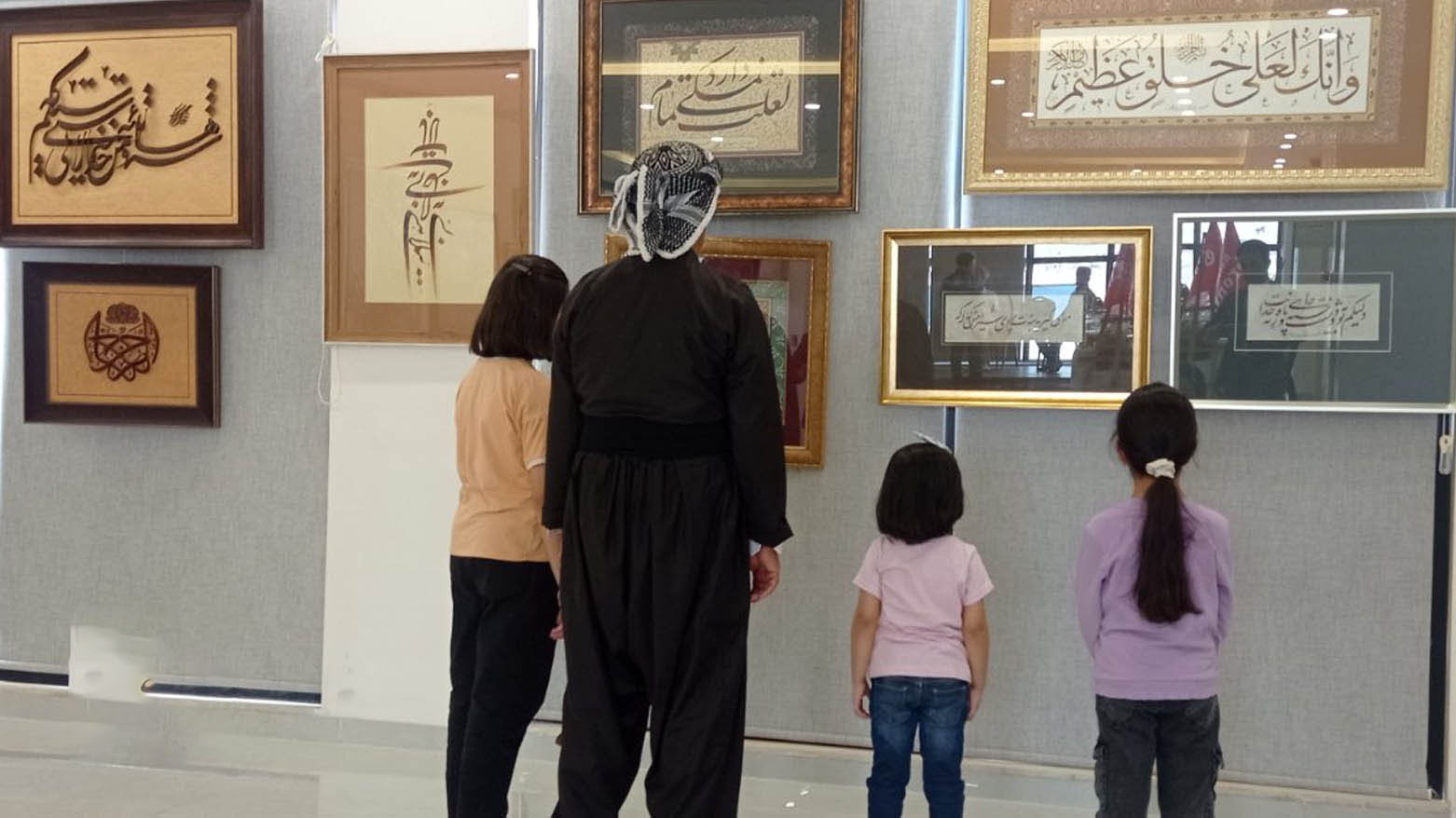Kurdish Calligraphers Champion Art in Digital Age
The head of Erbil's Calligraphers Association tells Kurdistan24 that while tech has impacted the art, it can't replace it. He also highlights the economic struggles and financial challenges facing the association and its nearly 500 artists.

ERBIL (Kurdistan24) – On the occasion of World Calligraphy Day, the head of the Erbil branch of the Calligraphers Association has acknowledged the challenges posed by modern technology to the ancient art form, while firmly asserting that digital tools can never truly replace the unique skill and passion of a calligrapher. Gaylan Pirbal highlighted both the resilience of the craft and the significant economic and institutional hurdles faced by its practitioners in the Kurdistan Region.
In an exclusive statement to the Kurdistan24 website on Wednesday, Gaylan Pirbal explained that the Calligraphers Association is currently unique to Erbil province.
He noted that while the association has more than 120 officially registered members with special identification cards, the actual number of artists in the city is much larger.
"There are nearly 500 calligraphers in Erbil," Pirbal stated. He also provided details on the association's membership, indicating that it includes both men and women, though "the number of females is lower compared to males." These official memberships are renewed every two years, he added.
Pirbal noted that several styles of calligraphy are practiced, but some are more commonly known within the Kurdistan Region.
He listed these as Kufic, Nasta'liq, Ruq'ah, Naskh, Diwani, and Thuluth, among others. Despite the rich tradition and dedication of its practitioners, he painted a challenging economic picture for those devoted to the art.
Pirbal mentioned that artists who work as calligraphers cannot make a living solely from their craft and are often forced to take up other jobs to support themselves. He emphasized that they persevere due to a "special passion for their craft."
Expanding on the theme of modern challenges, the head of the association's branch addressed the role of technology directly.
He acknowledged that while digital advancements have "not left the same space for calligraphy as in the past," he firmly believes that technology "cannot replace the work" of a human hand.
This struggle is compounded by institutional difficulties. Pirbal added that due to the association's "poor financial situation," it has been unable for several years to organize and open special courses for individuals who are passionate about learning the art of calligraphy.
The Erbil branch of the Calligraphers Association was founded in the Kurdistan Region's capital on Nov. 26, 1994, and continues to serve as a hub for the city's artists.
Its efforts are highlighted on days like World Calligraphy Day, which is observed globally on the second Wednesday of August each year.
The occasion serves as a special day that brings international attention to the beautiful art of calligraphy, encouraging people worldwide to take a moment to appreciate the skill and creativity involved in this timeless form of handwriting.
Kurdistan24's News Writer Shorsh Harki contributed to this report.
